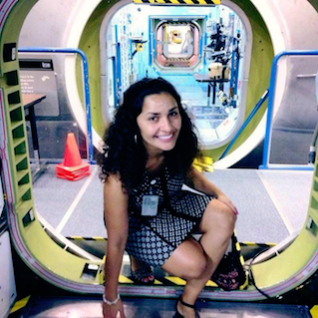
Indian-American scientist Anita Sengupta at the Cold Atom Laboratory (CAL) in NASA has something to cherish when her project heading to space aboard the Antares rocket reaches International Space Station (ISS) on Thursday.
The experiment uses lasers to slow atoms until they are motionless, cooling them to temperatures far below than what is possible on Earth. It could be 10 billion times colder than the vacuum of space, creating the coldest spot in the universe, according to NASA.
Anita Sengupta, an aerospace engineer with a Ph.D. from the Viterbi School of Engineering at the University of Southern California, had earlier pioneered the revolutionary supersonic parachute system (also known as the "seven minutes of terror") that was deployed during the landing of Mars Science Laboratory Curiosity. "Landing a rover with incredible precision on the surface of Mars is my favourite, the highlight of my career," she once told IIT-Madras students in one of her visits to India.
On her new experiment, the Indian-origin scientist is upbeat that the phenomenon of "Bose Einstein Condensate", which occurs just above absolute zero in the microgravity environment, can be studied better. These condensates can exist on Earth for up to a second at a time before they collapse, but in space they can exist for ten seconds or more, giving scientists ample time, she explained.
The five-year-old project has been designed to be modular, repairable and upgradable by astronauts on board the ISS, said Anita, who is currently the Senior Vice President of Systems Engineering at Virgin Hyperloop One, a Los Angeles-based tech company that has built the world's first operational Hyperloop in Las Vegas, pending certification.
Born to Indian father and British mother in Glasgow, Scotland, Anita Sengupta moved to the US for graduation and worked for NASA's Jet Propulsion Laboratory for over 15 years, especially on the ion propulsion system used for the Dawn Mission, besides the supersonic parachute that landed the Curiosity rover on Mars successfully in 2012.
Anita Sengupta, who enjoys weekend rides with her sports bike in the Southern California mountains, says the sky is not the limit but only the beginning.
"When I was six years old, I watched the original series 'Star Trek' reruns with my dad and the 'Doctor Who' original series on Public Television. The concept of alien worlds and civilizations made me wonder what else was out there and what I could do to be a space explorer," said the space explorer.














